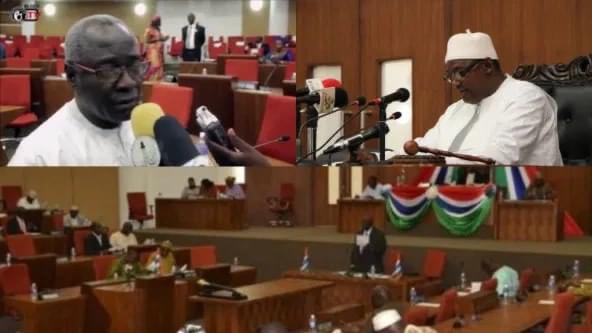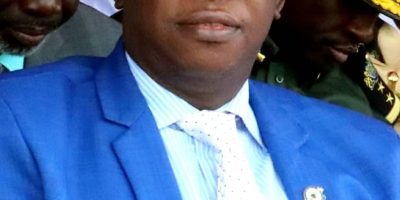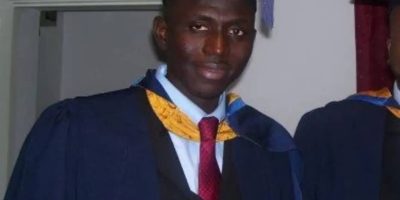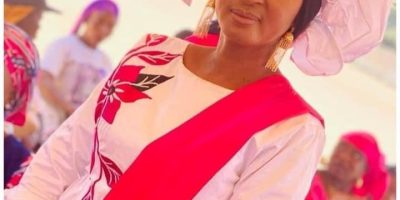By Alagi Yorro Jallow
Part II
 Mamudu: It is also astonishing that the oft-quoted Diasporarian Gambia remittances cease to count as a mark of loyalty for the country; love of country, meaningful ways of showing patriotism, and nationalism. The Gambia, the executive, and legislators’ myopic leadership or intent to enfranchise Gambians living abroad appears to dismiss the Gambian Diaspora’s fight to belong and serve in civic participation to useful citizenship.
Mamudu: It is also astonishing that the oft-quoted Diasporarian Gambia remittances cease to count as a mark of loyalty for the country; love of country, meaningful ways of showing patriotism, and nationalism. The Gambia, the executive, and legislators’ myopic leadership or intent to enfranchise Gambians living abroad appears to dismiss the Gambian Diaspora’s fight to belong and serve in civic participation to useful citizenship.
Let us be very clear that recognized belonging is the right of every citizen. Gambians in the Diaspora actively show their belonging by investing their hard-earned millions in their home country, and, like every other Gambian, they partake in nation-building every day.
Mamudu: This demand is not only unrealistic, but it is also sinister and cruel to require someone with family in the Diaspora to shoot themselves in the foot to serve their country. It is also worth pointing out that it is a global standard procedure for countries to appoint dual citizens as high-level diplomats. The United States has enough of these examples, starting with former Secretary of State Madeleine Albright, who is Czech-American. The great Internet will yield more good examples from several countries that have discarded the self-defeating and parochial view that dual citizens are to be feared, shunned, and their role in nation-building limited.forms to regain their citizenship and fight for voting right. The Gambia Citizenship and Immigration Act is blind and insensitive to Gambia’s quest for justice over its past ill-bend rule. Some of its provisions must be purged from the statute books.
Mamudu: Most Gambians who lost their citizenship did so because of the autocratic regimes of the past and the old Constitution’s constitutional rigidity that we rejected. If the past regime were not despotic, a few Gambians would not have had a reason to flee from the Gambia, let alone relinquish their citizenship by operation of the equally authoritarian Constitution. Their actions were part of a new Constitution; their plight directly influenced some formulations in the Constitution. These, and those in their circumstances, must never fill forms to regain their citizenship. The Gambia Citizenship and Immigration Act is blind and insensitive to Gambia’s quest for justice over its past ill-bend rule. Some of its provisions must be purged from the statute books.
Mamudu: This fear of dual citizens and Gambians live in the Diaspora, in general, has often elicited the open disdain of the government and politicians against Gambians living abroad. When this disdain and dismissal translate to suppression of citizens’ rights and opportunities, then it inevitably becomes a legal and a political battle. A good percentage of Gambian in the Diaspora community are bitter, malevolent, opinionated, and angry. How come both the 1970 and 1997 Constitution as well as the rejected Draft Constitution did not explicitly and unambiguously include Gambians in the Diaspora community to participate in elections as well as those with dual citizenship to be eligible to hold elective (public office) as Diaspora representatives in the National Assembly like other countries? Amending the Senegalese Constitution, Diaspora Senegalese enfranchised to the right vote and be voted received extra seats in parliament. Almost 10% of parliament seats for Senegalese live abroad, underlining Diaspora’s critical role in the Senegalese nation’s economy.
Mamudu: In reality, the Gambian Diaspora is a forgotten population because it is a politically disenfranchised constituency, denied the right to vote, and be voted, as expected in the new Gambia the rejected 2020 Draft Constitution. The path to the Gambia’s nationhood has been ridden with the marginalization of the Gambian Diaspora. They are marginalizing those whose political rights have been suppressed. Being a Gambian is the most important thing. Once a person is a Gambian, particularly by birth and parentage, he or she can hold public office EXCEPT for President and Commander-In-Chief of the Armed Forces of the Republic of the Gambia. However, those with dual citizenship cannot run for the presidency if one holds the citizenship or nationality of, or in any other manner who owes allegiance to a country other than The Gambia but, Gambians with dual nationality can be appointed and nominated in the civil, diplomatic, and public service. The Gambia owe it to those who fight for inclusion and tear down discriminatory laws because when they win, we all win. Gambians whose dual nationality results from the operation of that country’s law without the ability to opt-out are qualified to participate in Gambia’s political processes.
Mamudu: Having dual citizenship would not rob the holder of his/her primary citizenship. What is required for holding public office is for the person to be a citizen of the Gambia. There should be no law because you have dual citizenship. You cannot be disqualified from holding an elective post (Office of the President not included) or senior position in the Gambia government civil, diplomatic, and public service. Nothing should be debarring any Gambian citizen from holding public offices as long as the person is a Gambian. What is essential is for the person, either vying for a political office or being nominated for a position, to be a Gambia citizen and be qualified to hold such office. No law disqualifies anyone with dual citizenship from assuming public offices. This is entirely what the Diaspora Gambians expect within the new Gambia. There is no logical reasoning to support calls for any Constitution or law to disqualify Gambians from their voting rights because they are dual citizens.
Mamudu: Gambians in the Diaspora have never shied away from the fight for justice and inclusion. They have fought to make it clear that living a few hours away is a silly and unjust reason to be discriminated against and that legally holding more than one passport is not a measure of one’s loyalty or patriotism. It takes wise leadership to recognize that all citizens’ inclusivity regardless of their global residence is visionary in the globalized 21st century and that attempts at exclusion are toxic to the nation as a whole.
Mamudu: For a long time, geographical marginalization was reserved for those in the Gambian Diaspora. However, it would not ideally be considered a marginalized community because it is economically powerful, sending home more than 22 percent of the GDP in remittances annually. Gambians in the Diaspora have never shied away from the fight for justice and inclusion. They have fought to make it clear that living a few hours away is a silly and unjust reason to be discriminated against and that legally holding more than one passport is not a measure of one’s loyalty or patriotism. It takes wise leadership to recognize that all citizens’ inclusivity regardless of their global residence is visionary in the globalized 21st century and that attempts at exclusion are toxic to the nation as a whole.
Mamudu: Political exclusion, like any form of marginalization, implies the suppression of rights. The Gambia diaspora has an active history of the struggle for inclusion dating back to the millennium turn. It started with the push for dual citizenship. Gambians in the Diaspora, especially in the US, and who had settled there with their families began to understand that they were here for the long-haul. They needed to secure a structured belonging as transnational citizens.
Mamudu: Gambian Diaspora community learned from diasporas who had settled in the US for decades that no matter how long they stayed away from home, they still pledged allegiance to their home country. Jewish, Irish, Filipino, and other diasporas in the United States have become influential contributors to their home countries’ political and economic wellbeing while still maintaining active participation as citizens of the United States.
Mamudu: The diaspora community is growing, and the government must address the issue of political exclusion. Opportunities to make this viable between the government and the Diaspora are there. Voting is the most powerful of political rights, giving every individual citizen an equal voice regardless of ethnicity, religion, gender, or wealth. Diaspora voter inclusion is an imperative that would strengthen the sense of nationhood and attract investment from an endowed constituency seeking to play a role in nation-building.
Mamudu: This demand is not only unrealistic, but it is also sinister and cruel to require someone with family in the Diaspora to shoot themselves in the foot in order to serve their country. It is also worth pointing out that it is a global standard procedure for countries to appoint dual citizens as high-level diplomats. The United States has enough of these examples, starting with former Secretary of State Madeleine Albright, who is Czech-American. The great Internet will yield more good examples from several countries that have discarded the self-defeating and parochial view that dual citizens are to be feared, shunned, and their role in nation-building limited.




Ma sha Allah great and thanks for sharing